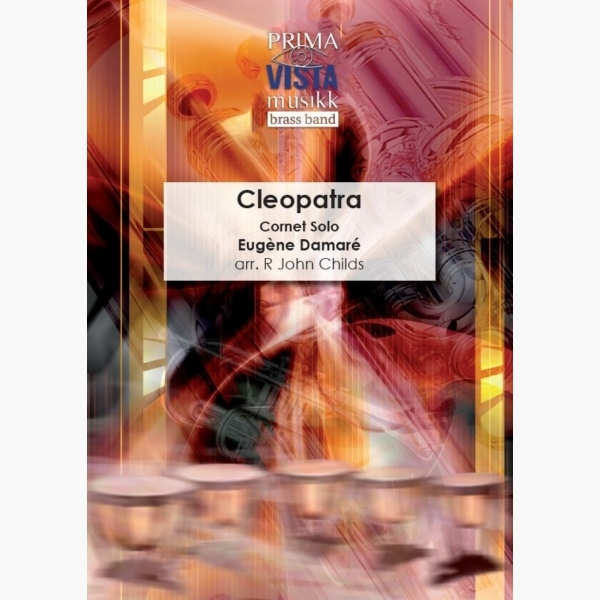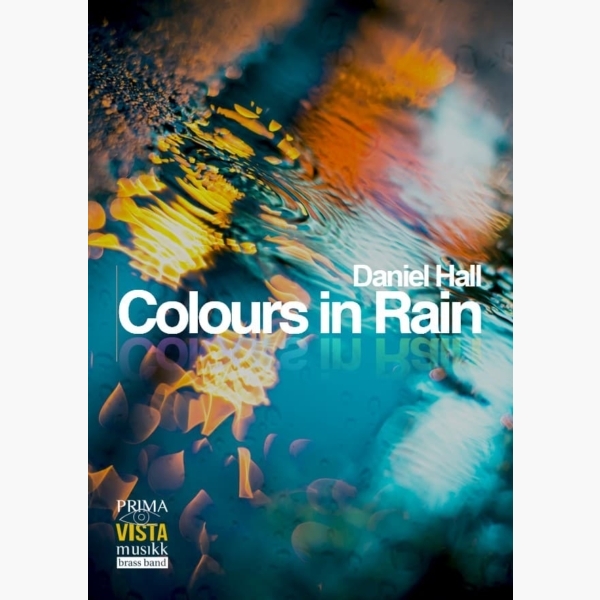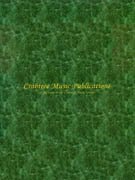Results
-
 £24.95
£24.95Cleopatra - Eugene Damare - R John Childs
This popular cornet solo was arranged by the late R John Childs whilst he was conductor of the Tredegar Town Band. It is one of the most famous of all triple-tonguing polkas and remains a favourite amongst cornet soloists and...
Estimated dispatch 5-7 working days
-
 £24.95
£24.95Colours in Rain - Daniel Hall
Colours in Rain was commissioned by Tredegar Town Band as the opening item in their concert the night before they defended their British Open title. For a fanfare, this composition starts unusually. Breaking away from the more conventional and traditional...
Estimated dispatch 5-7 working days
-
 £50.90
£50.90LITTLE TOWN (Flugelhorn Solo with Brass Band) - Freeh, Mark
Not the famous arrangement used in the UK, but beautiful none the less. Grade: Easy.
Estimated dispatch 7-14 working days
-
 £26.50
£26.50 -
 £78.40
£78.40 -
 £26.50
£26.50 -
 £59.99
£59.99When Christmas Comes to Town (Brass Band - Score and Parts) - Silvestri, Alan - Duncan, Andrew
from The Polar ExpressDuration: 3:00
Estimated dispatch 7-14 working days
-
 £40.00
£40.00Activate - Matthew Hall
ActivateTop to bottom in less than 2 minutes! Originally composed for Tredegar Town Band under the direction of Ian Porthouse, Activate is a fantastic way to start any programme in a concert or on the contest stage.The original conception of Activate occurred when Tredegar had 18 minutes of a 20 minute contest programme and couldn't find a piece to start the performance to fit in the time slot.With funky bass lines, percussion and melody lines as well as some devilish rhythmical elements in the inner parts, Activate is a sure fire way of getting the audience's feet tapping.The trombone solo in the middle section of the piece can be substituted on to any other Bb instrument should the need occur, and the piece can also be started with a drum kit rhythm rather than straight into the first bar.Activate
Estimated dispatch 5-7 working days
-
£40.00
Calon y Ddraig / The Heart of The Dragon - Matthew Hall
Calon y Ddraig (Heart of the Dragon) was commissioned by the Tredegar Town Band to finish their Brass in Concert programme at the 2012 contest held at The Sage, Gateshead. Using 2 traditional Welsh folk songs (Dacw 'Nghariad, Y Deryn Pur) along with 2 favourite Welsh hymns (Calon Lan, Cwn Rhondda) and the national anthem (Mae hen wlad fy nhadau), Calon y Ddraig typifies the spirit found in every man, woman and child from the Principality combining to create a rousing finale to any programme.https://matthew-hall.co.uk/wp-content/uploads/2012/01/Heart-of-the-Dragon-LTTB-.mp3
Estimated dispatch 5-7 working days
-
£40.00
Kiwi Dragon - Matthew Hall
'Kiwi Dragon' was commissioned by Byron 'Buzz' Newton for his Master's final performance recital at The Royal Welsh College of Music & Drama in 2012, a recital in which he was awarded an unprecedented 100%. Buzz travelled to Cardiff, Wales for his Master's degree course and became a member of Tredegar Town Band during his studies. 'Kiwi Dragon's' inception came from an initial conversation with the soloist where the thought of combining traditional Welsh folk music with that of Buzz's native New Zealand folk songs to create a virtuosic finishing piece for the recital was conceived. Originally scored for solo euphonium, 10-piece brass and percussion, 'Kiwi Dragon' includes the traditional New Zealand folk melodies Pokare Ana and Tarakihi and the Welsh folk melody Myfanwy, combined with the national anthems of both New Zealand and Wales in the pieces' culmination.
Estimated dispatch 5-7 working days
